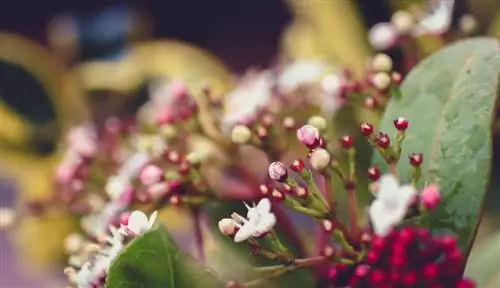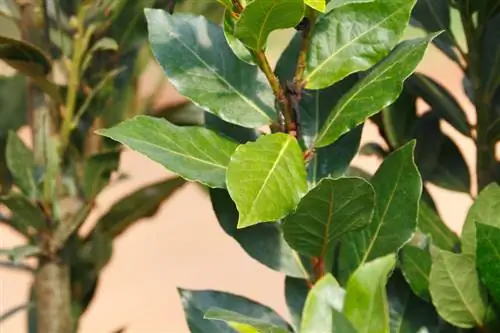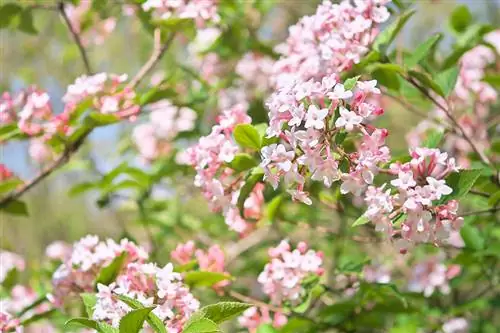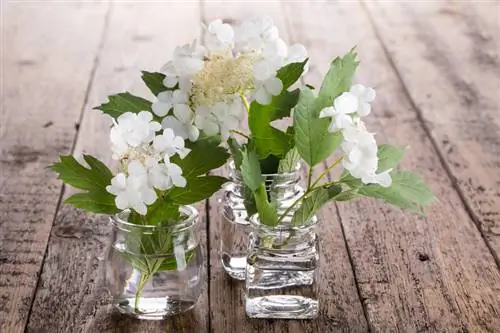- Author admin leonars@hobbygardeners.com.
- Public 2023-12-16 16:46.
- Last modified 2025-01-23 11:20.
It looks good, it's easy to propagate and it doesn't require a lot of care. However, there is a good reason to think twice about purchasing a winter snowball
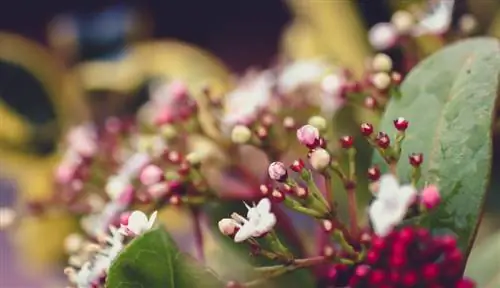
Is the winter viburnum poisonous and what symptoms can occur?
The winter viburnum is slightly poisonous in all parts of the plant, especially the leaves, fruits and bark. If consumed, nausea, vomiting, diarrhea, shortness of breath, gastrointestinal pain and irritation of the mucous membranes may occur. Protective measures such as gloves during care and a safe location are recommended.
Slightly toxic in all parts of the plant
The winter snowball, like its relatives, is poisonous. It is classified as 'mildly poisonous'. Consuming its plant parts can have a negative impact on physical well-being. Above a certain dose, consumption has the following effects:
- Vomiting
- Nausea
- Diarrhea
- Shortness of breath
- Gastrointestinal pain
- Mucosal irritations
Both the leaves and fruits as well as the bark of this plant are poisonous. It is therefore better to plant the winter snowball in a location where curious pets and small children have no access or where it is difficult for them to reach.
Tip
When handling the scented snowball, such as when cutting, wear gloves to avoid skin irritation!

